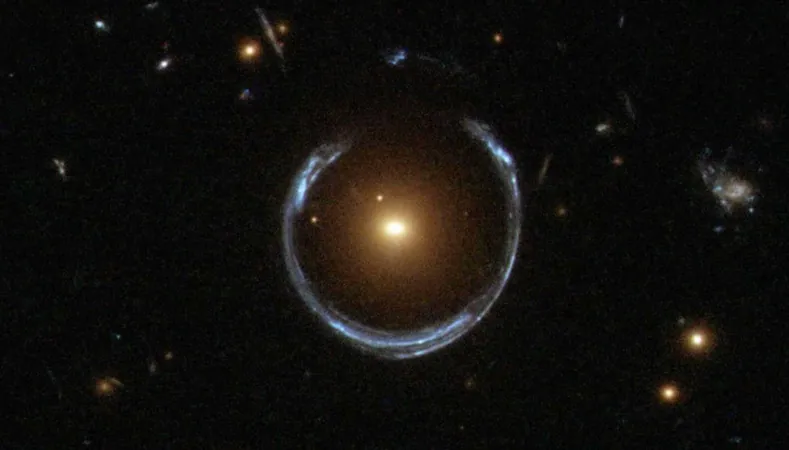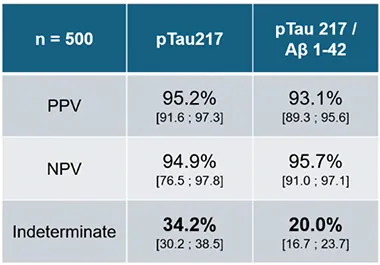
Shocking Discovery Challenges Einstein's General Relativity: Are We on the Brink of a New Physics Era?
2024-11-18
Author: John Tan
In a groundbreaking revelation more than 25 years ago, astrophysicists studying distant supernovae stumbled upon a startling fact: the universe is not just expanding, it’s accelerating. This unforeseen phenomenon has cast doubt on the very foundations of our understanding of physics, hinting that Albert Einstein's renowned theories might not tell the entire story of our cosmos.
Scientists from the universities of Geneva and Toulouse III – Paul Sabatier have unearthed intriguing evidence that questions the limits of Einstein's general relativity, venturing into uncharted territory with their analysis of the Dark Energy Survey. This comprehensive study uncovers inconsistencies between the predictions laid out by Einstein and the reality of how the universe has evolved over vast periods.
Published in Nature Communications, the researchers illuminate subtle deviations in cosmic behavior that challenge the long-standing notion that Einstein's theory neatly explains everything about the universe. Historically viewed as the benchmark for understanding gravitational phenomena, this pivotal theory may soon face unprecedented scrutiny.
Fracturing the Foundations of Gravitational Theory
Einstein's general relativity revolutionized our comprehension of gravity, depicting it as a curvature of space and time caused by massive objects, leading to effects such as gravitational lensing—a phenomenon verified in 1919 during a solar eclipse. Astrophysicists have heavily relied on this interpretation to explore the cosmos.
Yet, in this latest study, the research team has taken a distinct approach. Instead of primarily assessing matter distribution, they focused on how gravitational wells have varied over time and how this relates to spacetime distortions—an effort to directly measure these deviations against Einstein's predictions.
As Camille Bonvin, an associate professor at UNIGE, indicates, this novel perspective is crucial: “We used the Dark Energy Survey data to directly measure the distortion of time and space.”
An Unexpected Revelation
Analyzing data that encompasses over 100 million galaxies, the team scrutinized the evolution of gravitational wells across diverse epochs of cosmic history: 3.5 billion, 5 billion, 6 billion, and 7 billion years ago. Interestingly, while the depths of gravitational wells in the distant past align with Einstein's forecasts, recent measurements (3.5 and 5 billion years ago) reveal them to be unexpectedly shallower than predicted.
Lead author Isaac Tutusaus articulates the implications of these findings: “While there’s alignment with Einstein's predictions in the early universe, modern observations indicate a deviation that coincides with the onset of cosmic acceleration.”
This leads to a tantalizing hypothesis: could the commencement of accelerating expansion and the diminished growth of gravitational wells be linked by a new force of physics? “This hints that gravity may operate differently at greater scales than previously understood,” suggests Tutusaus.
The Path to a New Understanding
These fresh insights spark excitement but must be approached with caution. The observed discrepancies are classified as a 3-sigma level, not conclusively undermining Einstein’s equations which would require a more substantial 5-sigma finding to instigate doubt. Nonetheless, these results open the floodgates for further research in the quest to redefine our understanding of gravity.
The research team aims to refine their measurements, relying on data anticipated from the Euclid space telescope. This upcoming mission pledges to offer more precise observations of gravitational lensing by surveying 1.5 billion galaxies over six years, potentially offering a clearer picture of the dynamics of our universe and the mysterious forces at play.
As Tutusaus, Bonvin, and colleague Nastassia Grimm continue their investigations, the scientific community holds its breath, every new discovery potentially leading us closer to unraveling the secrets of the universe. This thrilling journey not only challenges the legacy of one of humanity's greatest scientific minds but may ultimately pave the way for revolutionary advances in our understanding of the cosmos.
Prepare for a cosmic adventure—one that could forever alter the course of physics as we know it!

 Brasil (PT)
Brasil (PT)
 Canada (EN)
Canada (EN)
 Chile (ES)
Chile (ES)
 España (ES)
España (ES)
 France (FR)
France (FR)
 Hong Kong (EN)
Hong Kong (EN)
 Italia (IT)
Italia (IT)
 日本 (JA)
日本 (JA)
 Magyarország (HU)
Magyarország (HU)
 Norge (NO)
Norge (NO)
 Polska (PL)
Polska (PL)
 Schweiz (DE)
Schweiz (DE)
 Singapore (EN)
Singapore (EN)
 Sverige (SV)
Sverige (SV)
 Suomi (FI)
Suomi (FI)
 Türkiye (TR)
Türkiye (TR)